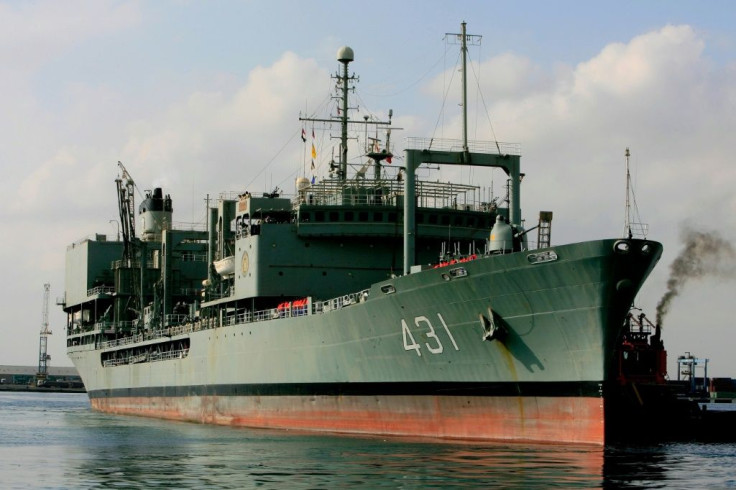Iran Quietly Replaced Spy Ship Damaged In April's Mine Attack, Say Reports
KEY POINTS
- Tehran moved back 'Saviz', accompanied by two tugs, soon after 'Behshad' took its place
- Iran claimed Saviz was helping in anti-piracy ops, but it is suspected to be a spy ship
- The Red Sea region has been on the boil after Israel-Iran maritime war escalated
Months after its spy ship 'Saviz' was attacked allegedly by the Israeli forces in the Red Sea, Iran quietly replaced the vessel with a similar one to gather intelligence in the strategically crucial waterway.
'Behshad,' an Iranian ship registered as a general cargo vessel, set sail from the port of Bandar Abbas in early July, reported CNN, quoting two unnamed US officials. The vessel reached Bab el-Mandeb strait, a crucial waterway that controls access to the Red Sea and the Suez Canal, nine days later, the report said, based on the information from ImageSat International, an Israeli satellite and intelligence company.
Tehran then moved 'Saviz' back to Iran, accompanied by two tugs. 'Saviz' had been patrolling the Red Sea for five years until it was hit by a limpet mine near the Yemen coast in April.
While Iran claimed 'Saviz' was helping Iranian commandos against pirate attacks, the Saudi-led coalition fighting in Yemen's civil war had said it was an intelligence-gathering ship linked to the Islamic Revolutionary Guard Corps and had been assisting Houthis in Yemen. While there was no official response from Jerusalem on the attack, Iran blamed Israel for the mine attack.
In 2018, then President Donald Trump had sanctioned both 'Saviz' and 'Behshad' as part of his campaign against Iran.
According to CNN, the U.S had been keeping an eye on the entire operation, as recent maritime conflicts stoked tension in the region. Earlier this month, an Israeli co-owned vessel, MT Mercer Street tanker, was struck in the northern Indian Ocean in what Israel and the U.S. claimed was a "drone-style attack." Two crew members died in the attack.
Though Iran denied any involvement in the attack, the U.S. and Israel had pushed for UN action against "Iranian terrorism."
The situation worsened last week, after Asphalt Princess, an asphalt and bitumen tanker, was allegedly hijacked in the Gulf of Oman. The U.S had then said it suspected Iranian involvement in the incident.
"We believe that these personnel were Iranian, but we're not in a position to confirm this at this time," State Department spokesman Ned Price told reporters in Washington after the incident happened.
"Iran has undertaken a pattern of belligerence in terms of proxy attacks in the region and of course, these maritime attacks," Price said.
However, Iran maintained that the "reported incidents in the Persian Gulf and broader region appeared utterly suspicious."

© Copyright IBTimes 2024. All rights reserved.











